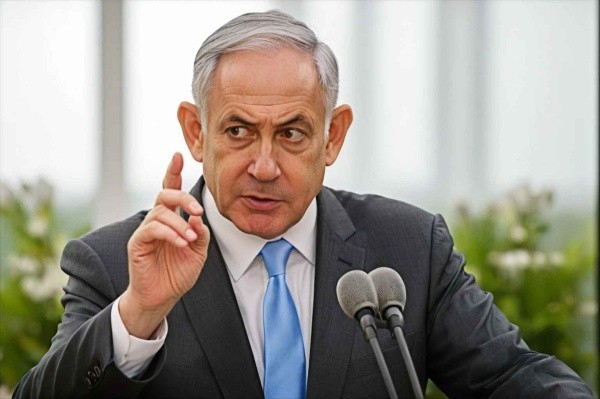Iran’s Plan to Strike Back Against the U.S.
Iran’s Military Preparations Following U.S. Attacks
Loading...

The Israeli PM has seized every opportunity to expand the fighting, and to sink any possible ceasefires.
Expansion of Conflict Amid Calls for Ceasefire
Beirut, Lebanon – The recent killing of Yahya Sinwar, a prominent Hamas leader, by Israeli forces in Rafah has sparked discussions among Western commentators about the potential for peace in the ongoing Gaza conflict. However, experts suggest that Israeli Prime Minister Benjamin Netanyahu is unlikely to ease military operations. Instead, Netanyahu may seize opportunities to prolong hostilities for personal and political gains, furthering an Israeli expansionist agenda aimed at displacing Palestinians and perpetuating occupation.
Netanyahu’s Political Motivations
Netanyahu's political career has been marred by corruption charges, including fraud, bribery, and breach of trust, which could result in a decade-long prison sentence if convicted. These charges, stemming from alleged exchanges of favors for positive media coverage, have heightened his fear of losing power. In response, Netanyahu has sought to influence the judiciary by proposing laws to limit its independence, all while facing international scrutiny for alleged war crimes in Gaza.
Analyst Diana Buttu suggests that Netanyahu thrives on a narrative of insecurity, using it to maintain control over Israel by perpetuating a state of war. This strategy was evident when Netanyahu attributed a Hezbollah drone attack on his home to Iranian agents, potentially laying the groundwork for expanding the conflict to include Iran.
Permanent Conflict and Its Implications
The ongoing war in Gaza, which began with an Israeli offensive in response to a Hamas attack in 2023, has resulted in significant loss of life and displacement. Despite Sinwar's death, analysts like Omar Rahman believe it will not alter Netanyahu's approach towards Gaza, which they argue is driven by a long-term goal of depopulation and destruction.
Israel's history of resisting political solutions that would lead to Palestinian sovereignty suggests a preference for military responses over diplomatic concessions. Yezid Sayigh, an expert on the Middle East, notes that successive Israeli governments have consistently rejected any genuine territorial compromises, thus perpetuating a cycle of conflict.
Escalation Despite Ceasefire Calls
Netanyahu’s rhetoric has continued to emphasize the necessity of military action, both in Gaza and against Hezbollah in Lebanon, ostensibly to rescue Israeli captives and secure northern Israel. His stance has been unwavering despite international pressure, notably from the United States, to consider ceasefires. This was exemplified by an order to assassinate Hamas’s political chief, Ismael Haniyeh, during his visit to Iran.
Israeli commentators like Oren Ziv argue that the far-right factions in Israel view such military actions as temporary victories, continually pushing for more aggressive measures. The killing of Sinwar, while momentarily satisfying, is unlikely to quell the appetite for continued conflict among Netanyahu's hard-line supporters.
The Cycle of Violence and Resistance
Historical patterns show that Israel's attempts to dismantle Hamas through targeted assassinations have often backfired, strengthening the group in the long run. After the assassination of Hamas founder Sheikh Ahmed Yassin in 2004, Hamas gained significant political power, winning the 2006 legislative elections.
Experts like Buttu and Rahman warn that the resistance will persist despite Israel's efforts to cripple Hamas. The deep-rooted grievances stemming from the Israeli occupation fuel ongoing resistance, ensuring it will continue in some form, regardless of the military setbacks Hamas faces.
In summary, the death of Sinwar is unlikely to bring about peace in the region. As long as the underlying issues of occupation and dispossession remain unaddressed, the cycle of violence and resistance is set to continue.
Editor
Iran’s Military Preparations Following U.S. Attacks
Troops remain in five strategic locations, raising fears of renewed tensions and long-term occupation.
Opposition forces have taken control of the capital after a significant offensive. Here is how it unravelled.
